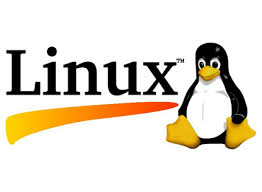Ubuntu
See the following -
Can Any Tablet OS Challenge Android And iOS?
Windows RT flopped but, seriously, is there any tablet OS that take on Android and iOS? Read More »
- Login to post comments
Canonical Embeds Ubuntu Linux Into Devices to Secure IoT
The new effort will extend Ubuntu's Snappy Linux technology to help enable the Internet of things...
- Login to post comments
Canonical Will Win Even If Ubuntu Edge Doesn't Make Its $32 Million
Canonical , Ubuntu's parent company, made a bet. It wagered that there were enough visionaries out there to crowd-source 32-million dollars for the first Linux-powered combination smartphone/PC, the Ubuntu Edge. It seems that the company will lose that wager, but in the long-run, I think Canonical will rise from the gadget gaming table a winner. Read More »
- Login to post comments
Canonical's Cloud-In-A-Box: Under The Hood
Canonical's Ubuntu Linux-powered Orange Box, with its 10 servers in a single container, is the perfect cloud sampler...
- Login to post comments
China Unicom Hedges OS Bets With Ubuntu Support
Chinese operators' support vital for new platforms as huge country looks for alternative to Android Read More »
- Login to post comments
Easing Linux Into The Enterprise
Applications are still driving the choice of desktop, but that no longer gives Microsoft's OS a clear edge. The ability now to replace nearly every application with a Web app theoretically makes Windows or any other platform's software portable to the Linux desktop, noted Rick Sizemore, director of technology transformation practice at Alsbridge...
- Login to post comments
Five Things Desktop Linux Has To Do To Beat Windows 8
Microsoft, as it did with Vista, is giving Linux another chance to make the gains in the PC market with Windows 8, but can Linux take advantage of this opportunity? Read More »
- Login to post comments
German City Hopes To Wean Citizens Off Windows XP With Free Linux CDs
Thousands of free Linux CDs are to be distributed to citizens of a German city in spring of next year. Read More »
- Login to post comments
How I Use Linux for Theoretical Physics
 In 2008, I started studying physics and got in contact with Linux, since a bunch of people used it for data analysis and simulations. Comprehension came fast and easy with such people around, and I was strongly encouraged to get things done with Linux. I installed Ubuntu on my notebook, and soon got familiar with Bash and the standard tools. After some years I turned to theoretical physics. While I was writing my master's thesis I gained access to a workstation running Scientific Linux, and a cluster system with a few hundred cores. I was impressed that each of my peers had implemented his own customized workflow, and that it was actually possible to work entirely with the keyboard, which is inconceivable for a Windows user...
In 2008, I started studying physics and got in contact with Linux, since a bunch of people used it for data analysis and simulations. Comprehension came fast and easy with such people around, and I was strongly encouraged to get things done with Linux. I installed Ubuntu on my notebook, and soon got familiar with Bash and the standard tools. After some years I turned to theoretical physics. While I was writing my master's thesis I gained access to a workstation running Scientific Linux, and a cluster system with a few hundred cores. I was impressed that each of my peers had implemented his own customized workflow, and that it was actually possible to work entirely with the keyboard, which is inconceivable for a Windows user...
- Login to post comments
How Linux and Makerspaces Can Strengthen Our Social Fabric
 In recent years, we've seen the rise of makerspaces, a new social invention where people with shared interests, especially in STEAM (science, technology, engineering, art, and math), gather to work on projects and share ideas. I was intrigued when I learned about a makerspace in my community, because I had never heard of such a concept before. I've since learned that makerspaces offer so much more than just a place to learn and build. A well-run makerspace also knits together a community and its social fabric—and, most importantly, invites in people who might otherwise be marginalized...
In recent years, we've seen the rise of makerspaces, a new social invention where people with shared interests, especially in STEAM (science, technology, engineering, art, and math), gather to work on projects and share ideas. I was intrigued when I learned about a makerspace in my community, because I had never heard of such a concept before. I've since learned that makerspaces offer so much more than just a place to learn and build. A well-run makerspace also knits together a community and its social fabric—and, most importantly, invites in people who might otherwise be marginalized...
- Login to post comments
How Time-series Databases Help Make Sense of Sensors
 Infrastructure environments' needs and demands change every year and systems become more complex and involved. But all this growth is meaningless if we don't understand the infrastructure and what's happening in our environment. This is where monitoring tools and software come in; they give operators and administrators the ability to see problems in their environments and fix them in real time. But what if we want to predict problems before they happen? Collecting metrics and data about our environment gives us a window into how our infrastructure is performing and lets us make predictions based on data. When we know and understand what's happening, we can prevent problems, rather than just fixing them...
Infrastructure environments' needs and demands change every year and systems become more complex and involved. But all this growth is meaningless if we don't understand the infrastructure and what's happening in our environment. This is where monitoring tools and software come in; they give operators and administrators the ability to see problems in their environments and fix them in real time. But what if we want to predict problems before they happen? Collecting metrics and data about our environment gives us a window into how our infrastructure is performing and lets us make predictions based on data. When we know and understand what's happening, we can prevent problems, rather than just fixing them...
- Login to post comments
Is Use of the Open Source GPL License Declining?
 A little while ago I saw an interesting tweet from Stephen O'Grady at RedMonk on the state of open source licensing, including this graph. This graph shows how license usage has changed from 2010 to 2017. In reading it, it is clear that usage of the GPL 2.0 license, one of the purest copyleft licenses around, has more than halved in usage. According to the chart it would appear that the popularity of open source licensing has subsequently shifted to the MIT and Apache licenses. There has also been a small increase in GPL 3.0 usage. So, what does all this mean?
A little while ago I saw an interesting tweet from Stephen O'Grady at RedMonk on the state of open source licensing, including this graph. This graph shows how license usage has changed from 2010 to 2017. In reading it, it is clear that usage of the GPL 2.0 license, one of the purest copyleft licenses around, has more than halved in usage. According to the chart it would appear that the popularity of open source licensing has subsequently shifted to the MIT and Apache licenses. There has also been a small increase in GPL 3.0 usage. So, what does all this mean?
- Login to post comments
Joyent Partners With Canonical On Customized Ubuntu As A Cloud Service
Joyent, well-known on the cloud computing scene and a growing player in Big Data analytics, announced a partnership with Canonical today to provide customers with optimized and supported Ubuntu server images in the Joyent Cloud. Effectively, users will be able to leverage a Canonical-customized Ubuntu in the cloud. [...] Read More »
- Login to post comments
Kids on Computers Establishes Computer Labs in Five Countries
 Linux and open source software are not just fueling charities, they are gifting the freedom of education and knowledge to the people the charities are helping because of the low cost, yes, but also the exceptional technology. This sentiment is proven when you look at the work the Linux Foundation does supporting a variety of community initiatives and organizations that are using Linux and open source software. While attending LinuxCon NA 2016 in Toronto I learned of Kids on Computers, one such organization...
Linux and open source software are not just fueling charities, they are gifting the freedom of education and knowledge to the people the charities are helping because of the low cost, yes, but also the exceptional technology. This sentiment is proven when you look at the work the Linux Foundation does supporting a variety of community initiatives and organizations that are using Linux and open source software. While attending LinuxCon NA 2016 in Toronto I learned of Kids on Computers, one such organization...
- Login to post comments
Linux 2017: With Great Power Comes Great Responsibility
 In 2016, Linux turned 25. When it began, it was a student project. Today, Linux runs everything. From smartphones to supercomputers to web servers to clouds to the car, it's all Linux, all the time. Even the one exception, the end-user, is moving to Linux. Android is now the most popular end-user opearating system. In addition, Chromebooks are becoming more popular. Indeed, even traditional Linux desktops such as Fedora, openSUSE, Mint, and Ubuntu are finally gaining traction. Heck, my TechRepublic Linux buddy Jack Wallen even predicts that "Linux [desktop] market share will finally breach the 5-percent mark"...
In 2016, Linux turned 25. When it began, it was a student project. Today, Linux runs everything. From smartphones to supercomputers to web servers to clouds to the car, it's all Linux, all the time. Even the one exception, the end-user, is moving to Linux. Android is now the most popular end-user opearating system. In addition, Chromebooks are becoming more popular. Indeed, even traditional Linux desktops such as Fedora, openSUSE, Mint, and Ubuntu are finally gaining traction. Heck, my TechRepublic Linux buddy Jack Wallen even predicts that "Linux [desktop] market share will finally breach the 5-percent mark"...
- Login to post comments